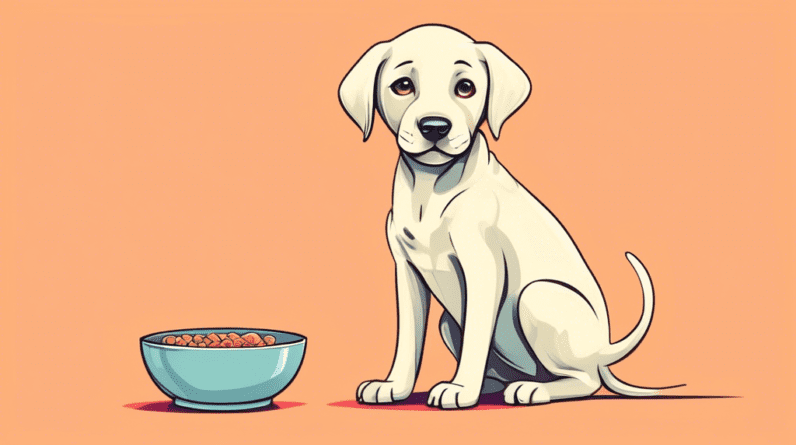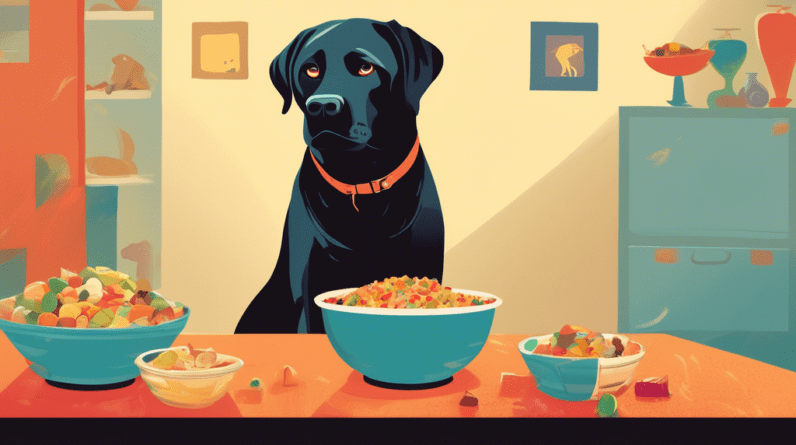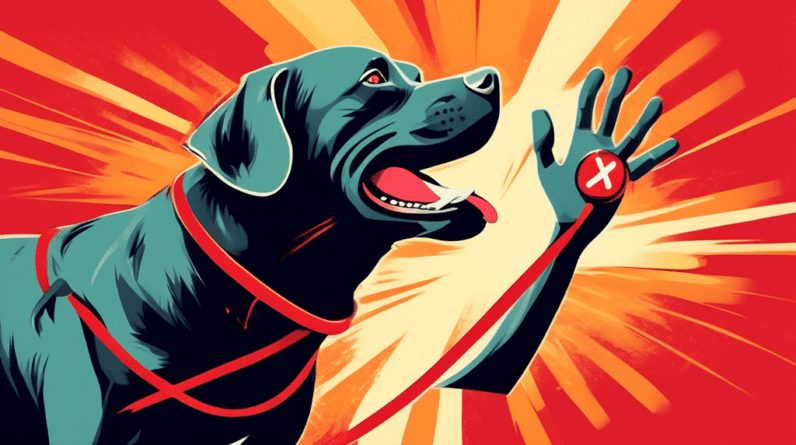
Why Does My Labrador Eat So Much? Understanding Your Lab’s Voracious Appetite
The Science Behind a Labrador’s Appetite
Labrador Retrievers are beloved for their friendly nature, intelligence, and trainability. However, their love for food is equally renowned, often leaving owners wondering, Why is my Lab always hungry? The answer lies in a fascinating blend of genetics, physiology, and breed-specific traits.
1. The POMC Gene: A Hunger Hormone Connection
Let’s dive into the fascinating world of genetics! Labradors, especially those eager retrievers, often carry a specific gene variant called POMC. This gene plays a crucial role in regulating hunger and satiety. In simpler terms, the POMC variant commonly found in Labs can disrupt the normal signaling pathways that tell the brain, Hey, I’m full! This can lead to a constantly rumbling stomach and a seemingly insatiable desire for food.
2. Bred to Work: A History of High Energy Needs
Centuries ago, in the rugged landscapes of Newfoundland, Labrador Retrievers earned their keep as hardworking fishermen’s companions. They plunged into icy waters to retrieve fishing nets and hauled heavy loads, demanding an immense amount of energy. To fuel this demanding lifestyle, they developed a highly efficient metabolism and a natural tendency to scavenge for any available food.
Fast forward to today, and while most Labs live more pampered lives, their genetics still carry the legacy of their hardworking ancestors. Their bodies are primed to consume and store energy, even if their daily routine involves more cuddles on the couch than retrieving nets.
3. Exercise and Enrichment: Curbing the Endless Hunger
While you can’t change your Lab’s genetics, you can significantly influence their appetite and overall well-being through exercise and mental stimulation. Remember those energetic ancestors? A lack of physical activity can contribute to boredom and restlessness, often manifesting as increased begging or scavenging for food.
Aim to provide your Labrador with at least 30 minutes to an hour of exercise daily. This can include brisk walks, invigorating runs, playful fetch sessions, or engaging swims (after all, they were bred for water!).
4. Mental Stimulation: A Tired Lab is a Less Hungry Lab
Just as important as physical exercise is mental enrichment. Puzzle toys, interactive feeders, and obedience training can challenge your Lab’s mind, tire them out mentally, and reduce boredom-induced hunger pangs. A mentally stimulated Lab is less likely to focus on an empty food bowl.
5. High-Quality Food: Fueling Your Lab Right
The type of food you choose plays a crucial role in managing your Labrador’s appetite and overall health. Opt for high-quality dog food that’s specifically formulated for Labrador Retrievers, considering their age, activity level, and any specific health conditions.
Here’s what to look for in a good Labrador food:
- High-quality protein sources as the main ingredient (e.g., meat, poultry, fish)
- Moderate fat content to support energy levels
- Fiber-rich ingredients to promote a feeling of fullness
- Controlled calorie content to prevent overeating
6. Don’t Give In to Those Puppy-Dog Eyes!
We know, those pleading eyes are irresistible! But giving in to your Labrador’s every food request can create a pattern of begging and overeating. It’s essential to establish consistent feeding times and stick to a regular schedule. This helps regulate their metabolism and reduces anxiety around mealtimes.
7. Watch for Medical Conditions
While a healthy appetite is characteristic of the breed, excessive hunger can sometimes signal an underlying medical condition. If you notice a sudden or dramatic increase in your Labrador’s appetite, consult your veterinarian. They can rule out any potential health concerns such as:
- Hyperthyroidism: An overactive thyroid gland can lead to increased metabolism and a voracious appetite.
- Diabetes: A lack of insulin production can result in the body’s inability to properly utilize glucose, leading to constant hunger.
- Intestinal Parasites: Parasites can interfere with nutrient absorption, causing dogs to feel constantly hungry.
8. The Importance of Portion Control
Following the feeding guidelines on your dog food bag is an excellent starting point, but remember that each dog is an individual. Factors like age, activity level, metabolism, and even neuter status can influence how much food your Labrador actually needs.
Don’t be afraid to adjust portion sizes based on your dog’s body condition score. Your veterinarian can help you assess if your Lab is at a healthy weight. Maintaining a healthy weight is crucial for preventing obesity, joint problems, and other health issues in Labradors.
9. Treats: Moderation is Key
Let’s be honest – what’s not to love about spoiling our furry friends with treats? However, it’s easy to overdo it, especially with a food-motivated breed like a Labrador. Treats should make up no more than 10% of your dog’s daily caloric intake. Consider using a portion of their regular kibble for training treats to avoid excess calories.
10. The Power of Patience and Understanding
Living with a Labrador Retriever means embracing their love for food. By understanding the science behind their appetite, providing adequate exercise and enrichment, offering a balanced diet, and practicing portion control, you can help your Lab live a happy, healthy, and fulfilling life – without constantly battling the hungry monster within!






